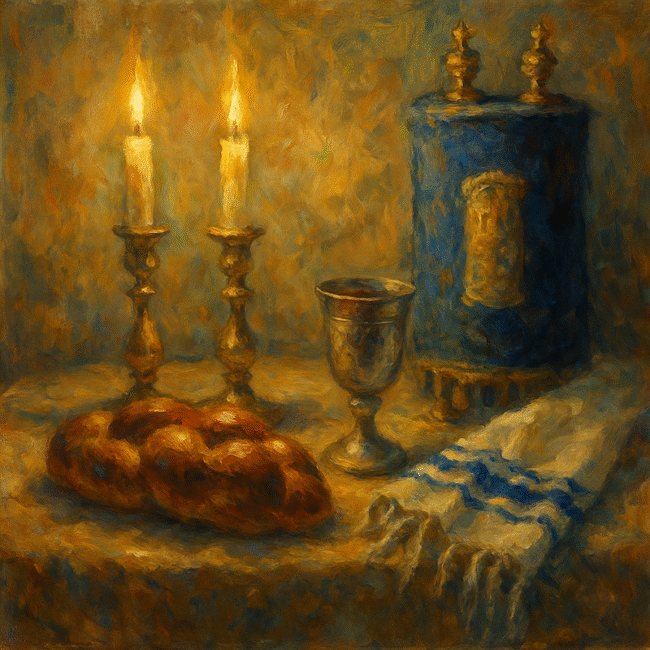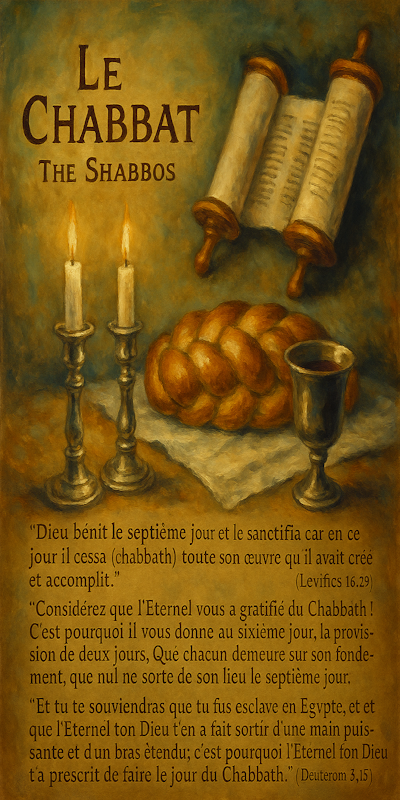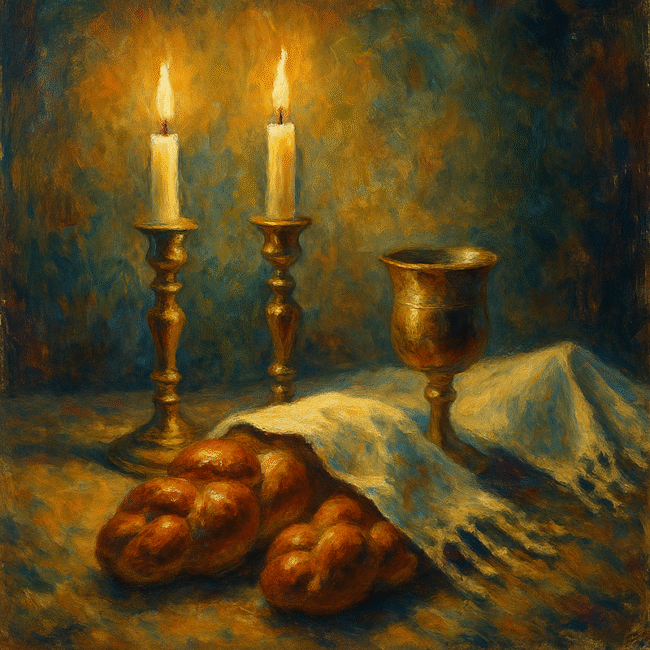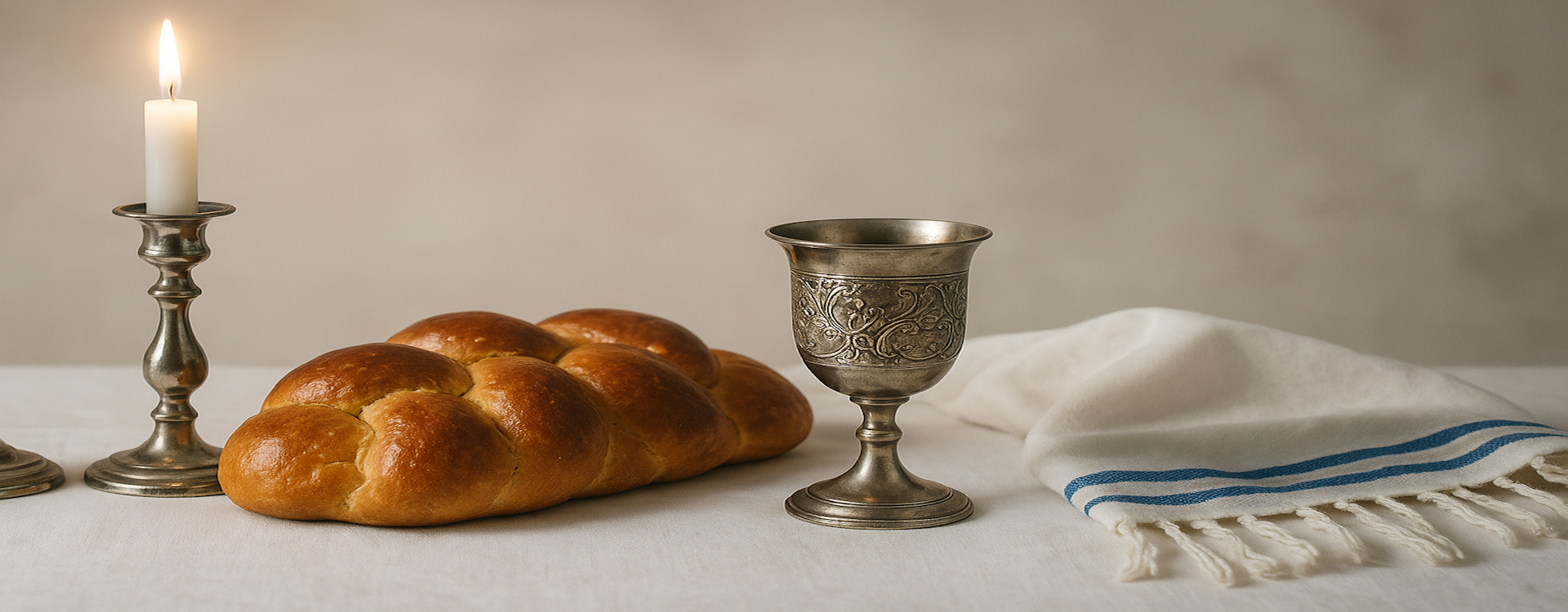Le Shabbat
« Dieu bénit le septième jour et le sanctifia car en ce jour il cessa (Chabbath) toute son œuvre qu’il avait créée et accomplie. » (Genèse 2:3)
« Considérez que l’Éternel vous a gratifiés du Chabbath ! » C’est pourquoi il vous donne, le sixième jour, la provision de deux jours. Que chacun demeure sur son fondement, que nul ne sorte de son lieu le septième jour. (Lévitique 16,29)
« Et tu te souviendras que tu fus esclave en Égypte », et que l’Éternel ton Dieu t’en a fait sortir d’une main puissante et d’un bras étendu ; c’est pourquoi l’Éternel ton Dieu t’a prescrit de faire le jour du Chabbath. (Deutéronome 5:15)
Pierre angulaire du judaïsme, le Chabbath commande un retour au fondement de l’humain afin de le libérer du vacarme du monde qui l’éloigne de lui-même.
Pour favoriser ce retour vers une intériorité, vers une relation juste avec l’Absolu, le droit hébraïque encadre le commandement du Chabbath d’une série de règles établies avec rigueur, sagesse et intelligence, afin qu’il puisse être accompli sérieusement.
Ces règles pénètrent les moindres détails des gestes quotidiens pour que les réflexes usuels ne renvoient pas l’individu vers l’extériorité du monde, mais le recentrent sur son intériorité.
Elles peuvent être perçues comme des contraintes, mais cette perception est issue des sollicitations ininterrompues du monde auquel nous répondons durant six jours.
Le Chabbath est une exigence : savoir ménager un temps hors du vacarme durant un jour.
Savoir s’extraire du tumulte afin de se retrouver est un apprentissage — et c’est précisément cet apprentissage que permet le respect de la règle.
Le Chabbath est un cadeau précieux, car il décille les yeux et permet à notre regard de s’orienter vers une réalité autre que celle que nous tenons pour incontournable.
Il offre ainsi la perspective d’un monde nouveau.




